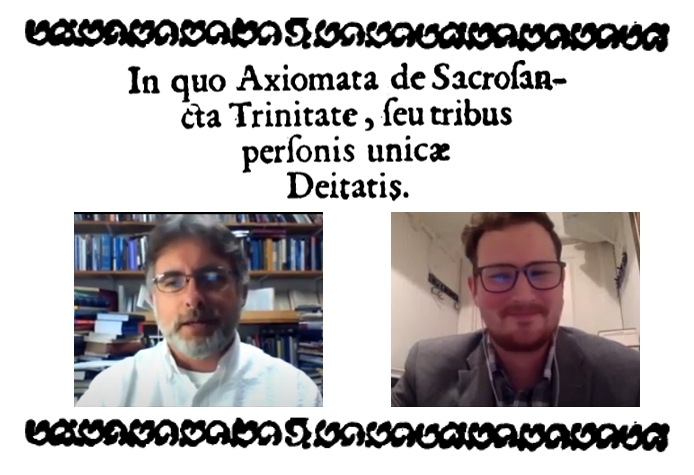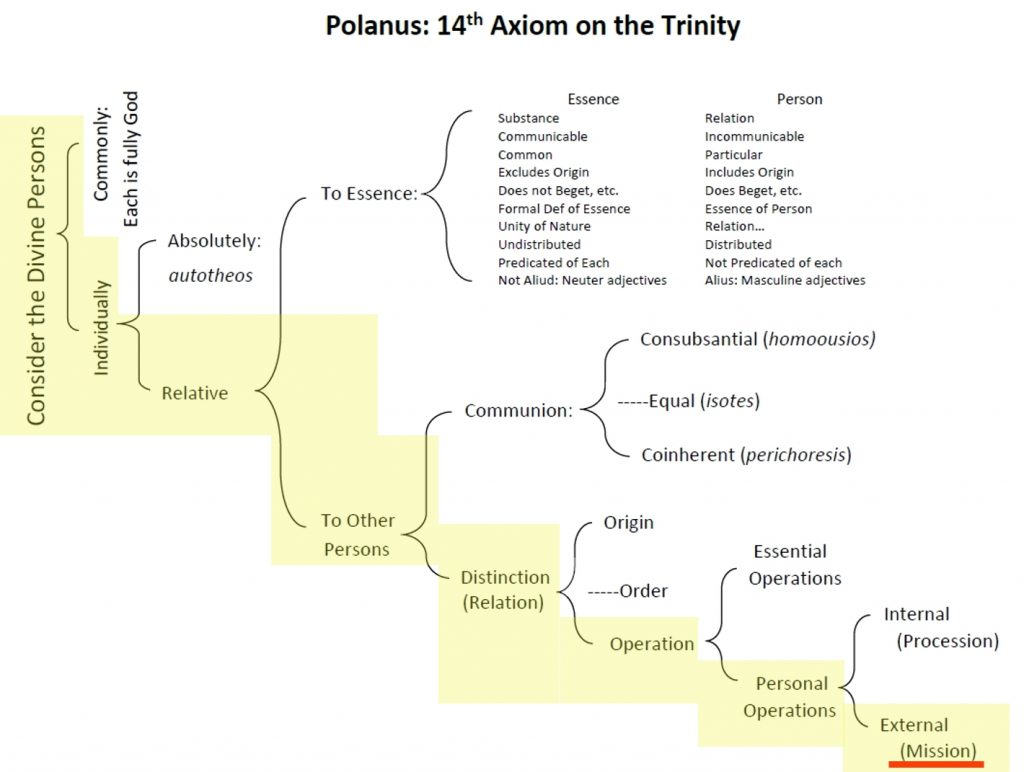
In trinitarian theology, the word “mission” is a precise and technical term. Though the word itself just means “sending,” a trinitarian mission is the external personal operation of one of the Trinity. It presupposes something very important, and that is an eternal relation of origin within the Trinity. The temporal mission extends or manifests that eternal relation. So you might say that the only persons of the Trinity who can be the subject of mission are the persons of the Trinity who are eternally from another person of the Trinity. All of this is the deep background of the sending of the Son and the Spirit.
This is the sweet spot in trinitarian theology, because it’s where the doctrine of God opens up beautifully onto the doctrine of salvation.
It has taken us a long time to get to this point in the 18 Axioms of Amandus Polanus. It’s the final thing mentioned in the longest Axiom, number 14. Axiom 14 is long and complex enough that I’ve made a chart to help us keep our place within it; here’s that chart updated to show that we finally made it to the missions:

As Ryan and I point out in this conversation, there is something wonderful and bracing about the very fact that mission has its proper place way down there at the end of a long and careful explanation of the triune God’s life. It means that when you speak of the Father sending the Son and the Spirit, you’ve got the infinite heft of God’s boundless eternal life behind it.
One other great moment in this final part of Axiom 14: “missio et apparitio differunt.” There’s a difference between the mission of a divine person and an appearance of a divine person. This is a big deal with a lot of explanatory power, and I think we celebrate it appropriately.
Okay, here’s the first-ever English translation of it:
The external personal operation is the mission of any person—i.e., merely the new way of manifesting the person and his efficacy without a change of place, because the divine person who is sent is God, and God is everywhere. One says the persons are sent according to their mode of origin, such that, under a certain concept, one person is sent without another. The Father only sends, and is not also sent. The Son is sent from the Father, from himself, and from the Holy Spirit, so he can assume flesh and send the Holy Spirit into the hearts of the faithful. The Holy Spirit is sent from Father and Son. Their mission and obedience does not overturn their oμοουσια and equality of power, but only distinguishes the persons and their duties. Thereon, the mission of persons is only under the concept of their external operation, and is only temporal.
Mission and appearance differ—because the Father appeared to Daniel under the auspice of the Ancient of Days (Daniel 7), but he is not sent.
Following from the distinction of persons, it is clear that in each divine person, the specific existence is not under some concept of essence, but a singular mode υπαρξεως and operations. For it singularly belongs to the Father to generate; singularly belongs to the Son to be generated; and singularly belongs to the Holy Spirit to emanate from both.
And here’s the conversation: